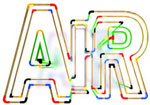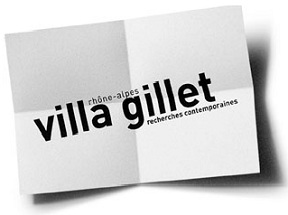Frederick Wiseman on Reality and film
![[title-image]1332154739517[/title-image] wiseman-dr_1346669189489.jpg](https://cle.ens-lyon.fr/anglais/images/wiseman-dr_1346669189489.jpg)
Frederick Wiseman is an American filmmaker, documentarian, and theatrical director. He came to documentary filmmaking after first being trained as a lawyer. He has won numerous film awards, as well as Guggenheim and MacArthur fellowships. In 2003, Wiseman was awarded the Dan David Prize for his outstanding films, which make us reckon with our emotions and the cost to society of marginalizing those who cannot speak for themselves.
The provocative starting point sent to me for this debate states that "Artists and writers are vampires who feed on reality." I do not think this is any more true of artists and writers than it is of anybody whether they be doctor, lawyer, used car salesman, fishmonger, politician, farmer, priest, housewife or any of the other hundreds of thousands of jobs that exist. All people at all times are drawing on and talking about their interpretation of reality whether or not accurately or fairly. The difference for artists and writers is that they create an external, tangible, often identifiable form for what they have taken from "reality". For everyone else their partial selection from the great glob of sights, sounds, feelings and experiences that constitute living is either formless, which may be another way of describing insanity or takes the form of constructing something, a family, a business, a farm, a garden, a website, a stamp collection or any of the myriad possibilities for creating a more limited structure that makes it somewhat easier to pass the time from birth to death. All of us, it is almost too banal to state, are constantly using what we take from others for our own purposes. One significant difference for artists is that they are allegedly more conscious of what they are doing, meaning that they may be somewhat more aware of the choices they are making and the consequences of those choices for their work. The complex relation between intuition and rationality will vary enormously within each artist or writer over time as well as between them. This also is equally true, in a perhaps more circumscribed form, for anyone, even if they do not stake a claim to be an artist or writer, trying to create a structure within which they can work and live their lives.
As a film-maker I use words spoken by non actors and moving pictures of their bodies. Of course "the world is the source" since life elsewhere is not known and heaven and hell's existence are unproven metaphors (so far only one person has made the round trip and even then for only a few days). In the shooting of a film often described as a "documentary", though this is a word I dislike since it suggests in its blandness something dull and politically correct), I accumulate from 90 to 250 hours of film (I still prefer the word ‘film’ even though, alas ,I am, for money reasons, forced to shoot and edit in a digital format... These moving pictures, these sights and sounds from the lives of others have collectively no form except insofar as I am able to impose a form on them as a result of editing. The essence of editing is making choices about what material to use and how to order it. I have to select, reduce and summarize sequences I choose to use and then find a way of relating them to each other in a form that tells a story, creates a metaphor and works as a film. The editing of the material is similar in some ways to writing except the relation of fact to imagination is different. The writer of a novel, a poem or a play is only limited by the scope of his imagination in relation to his experience. I am limited by the way my imagination can play with the 90 to 250 hours of rushes I have accumulated. While the possible combinations are not infinite the field of choice against which my imagination can play is large even though the length of the rushes is nothing compared to years of living in the world.
What is my obligation to the people whose words and experiences I choose to use? I think it is very important to be "fair" even though I have no precise definition of what the word means. I use "fair" to suggest that I try not to manipulate the editing so that the point of the sequences in their edited form is different than the original material. It is of course, going to be somewhat different since I might end up using 5 minutes from a sequence which, as it happened, occurred over fifty minutes of which 45 might be filmed. The five minutes I use will rarely be five consecutive minutes but rather shots of different lengths, 30 seconds here, 20 seconds there which are edited together to appear as if the sequence originally took place as it exists in its edited form. This is a fiction since it is a selection from the rushes which are in turn a selection from the original event. The camera is, of course, different from the human eye, since the eye has no zoom, so that whatever is photographed is already not the same as the reality from which the edited sequence has been selected. I try not to mock people not only because it is not fair but the fool will turn out to be me, the film-maker, rather than the person allegedly mocked. On the other hand if a situation is funny, in whatever possibly warped way, I may think it is funny, I will not hesitate to use it as long as I do not feel that I have twisted the sequence to find the humour I think is present. To make a general statement, I try to preserve the integrity, complexity, ambiguity, humour and sadness of the original event, which is to say my understanding of the event, which may or may not be accurate. One of the joys of editing is that I have to constantly ask myself the question "why". Why do they choose the words they use? Why does someone pause in mid sentence? Why do they turn their head? Why ask for a cigarette at that particular moment? Why are they wearing the clothes they have on for the particular event they are participating in? Why do they choose to remain silent? I am trying to explain to myself the reasons for the behaviour of the people filmed in order to make the selection and ultimately to determine how to order those selected edited events into a dramatic structure. Even if my hypothesis may be incorrect I have to have it for each sequence, to explain to myself why one sequence follows another and to understand the overall significance of the order of all the sequences ie how each sequence is connected to the others and to the structure of the film in its final form. Much of film editing has little to do with the technical aspects of film-making but rather with an effort analyze and understand the behaviour of others.
I have to assume, when I ask people permission to film them and explain that the film will be shown in theatres, on television, dvd and other forms of projection, that they understand my explanation. In this sense I am in no different situation than a doctor asking a patient to sign a release form. Whether or not all people actually understand is impossible to determine. In a democratic society the law assumes the capacity for rational thought and understanding unless a person is determined to be incompetent. In making movies I make the same assumption and in my view, therefore, the participants in my films are voluntarily participating.
Pour citer cette ressource :
Frederick Wiseman, Frederick Wiseman on Reality and film, La Clé des Langues [en ligne], Lyon, ENS de LYON/DGESCO (ISSN 2107-7029), septembre 2012. Consulté le 22/02/2026. URL: https://cle.ens-lyon.fr/anglais/arts/cinema/frederick-wiseman-on-reality-and-film



 Activer le mode zen
Activer le mode zen


